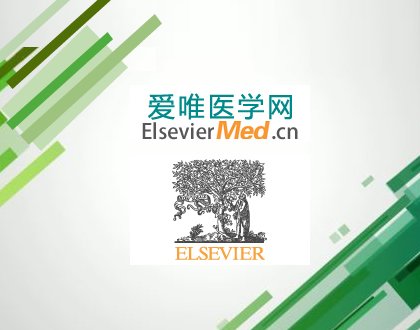叶酸补充剂不影响癌症发病率
一项纳入13项大规模随机对照试验的Meta分析显示,服用叶酸补充剂既不会增加也不会降低治疗期间的癌症发病率。该Meta分析已发表在《柳叶刀》1月25日在线版上(Lancet 2013 [doi: 10.1016/S0140-6736(12)62001-7])。
从20世纪90年代晚期开始,多个国家开始强制在面粉中添加叶酸以预防神经管缺损,一些人还认为服用叶酸补充剂有助于预防癌症。但其他一些国家并未允许对食品进行叶酸强化,也不建议服用叶酸补充剂,部分原因在于担心叶酸可能促进癌症发生和进展。
纳入本项Meta分析的研究均符合下列条件:随机对照试验,评估叶酸补充剂的效能,招募至少500名受试者,结局中包含癌症发病率,对受试者进行至少1年的补充剂/安慰剂干预。最后共纳入13项研究,49,621名受试者。挪威公共卫生研究所的Stein Emil Vollset博士表示,用叶酸补充剂预防癌症的希望和对其诱发癌症的担忧都被这项Meta分析结果打消了。
2/3的受试者为男性,基线时平均年龄为64岁。在12项研究中,受试者每日服用叶酸剂量为0.5~5 mg不等,另一项研究则评估了40 mg/d大剂量叶酸的效果。治疗时间为1.8~7.4年不等(平均5.2年)。
服用补充剂可使血浆叶酸浓度升高3倍,并使血浆同型半胱氨酸水平降低25%。在检验大剂量叶酸的那项试验中,服用补充剂使得血浆叶酸浓度升高了100倍,但对血浆同型半胱氨酸水平未产生明显的进一步影响。
叶酸补充剂对总体癌症发病率的影响并不显著。在服用补充剂的受试者中,所有类型癌症的总发病率为7.7%,而服用安慰剂者为7.3%,差异不明显。
延长治疗时间或提高补充剂剂量,并不影响总体癌症发病率。后者也不随年龄、性别、基线叶酸水平、基线同型半胱氨酸水平,或者是否住在使用叶酸强化面粉的国家而改变。
尽管在使用大剂量补充剂的那项试验中血浆叶酸水平增加百倍,但补充剂组(65例癌症)与安慰剂组(72例癌症)之间在总体癌症发病率方面仍无显著差异。
叶酸补充剂对特定部位癌症的发病率也没有明显影响,包括结直肠癌、肺癌、乳腺癌和前列腺癌。
这项研究由英国心脏基金会、英国医学研究委员会、英国癌症研究学会和英国食物标准局资助。
爱思唯尔版权所有 未经授权请勿转载
By: MARY ANN MOON
Taking folic acid supplements neither increases nor decreases the incidence of cancer during the treatment period, according to a meta-analysis of 13 large randomized controlled trials that examined this issue, which was reported online Jan. 25 in the Lancet.
Folic acid fortification of flour to prevent neural tube defects has been mandatory in several countries beginning in the late 1990s, and since then further supplementation has been touted as a possible cancer preventive. But several other countries do not allow folic acid fortification and discourage supplementation, partly because of fear that it could promote cancer incidence or progression.
The investigators reviewed all the randomized trials published in the medical literature through 2010 that assessed the effects of folic acid supplements. Trials were included in the meta-analysis if they contained at least 500 subjects, assessed cancer incidence as an outcome, and randomized subjects to either supplements or placebo for at least 1 year. The researchers included 13 trials with 49,621 subjects in their meta-analysis.Neither the hope that folic acid supplements might prevent cancer nor the fear that they might promote it were borne out by this meta-analysis, said Dr. Stein Emil Vollset of the Norwegian Institute of Public Health and the University of Bergen (Norway), and his associates.
Two-thirds of the participants were men, and the mean age at baseline was 64 years. Daily doses of folic acid ranged from 0.5 mg to 5 mg in 12 of the studies, and another study assessed a high dose of 40 mg daily. The duration of treatment was 1.8-7.4 years (mean, 5.2 years).
Taking the supplements was associated with a quadrupling of plasma levels of folate and a 25% reduction in plasma homocysteine levels. In the single trial of high-dose folic acid, supplements raised plasma levels of folate 100-fold but produced little further effect on plasma homocysteine levels.
Folic acid supplementation had no significant effect on the incidence of cancer overall. The rate of all types of cancer was 7.7% in subjects who took the supplements and 7.3% in subjects who took placebo, a nonsignificant difference, Dr. Vollset and his colleagues reported (Lancet 2013 [doi: 10.1016/S0140-6736(12)62001-7]).
The overall cancer incidence did not change with increasing duration of treatment or increasing dose of the supplements, nor did it vary by patient age, sex, baseline folate levels, baseline homocysteine levels, or the use of flour fortification in the country of residence.
Even in the trial of high-dose supplements that raised plasma levels of folate 100-fold, there was no significant difference in overall cancer incidence between the supplement group (65 cancers) and the placebo group (72 cancers).
Folic acid supplementation also had no effect on the incidence of site-specific cancers, including colorectal, lung, breast, and prostate cancers. Thus, these trials "provide no significant evidence of short-term effects of folic acid supplementation on overall cancer incidence or on the incidence of any particular type of cancer," the researchers said.
Neither this meta-analysis nor the randomized controlled trials it was based on addressed whether there are longer-term beneficial or harmful effects of folic acid supplementation, they added.
This study was supported by the British Heart Foundation, the UK Medical Research Council, Cancer Research UK, and the UK Food Standards Agency.
欢迎关注Elseviermed官方微信

上一篇: 酮症酸中毒仍常为1型糖尿病首要表现
- 您可能感兴趣的文章
-
- 他们推荐了的文章
-
- •徐留建 顶文章 阻塞性睡眠呼吸暂停、心血管疾病风险及全因死亡率:对前瞻性队列研究的meta分析 16小时前
- •刘国梁 顶文章 施仲伟:起始降压治疗策略——争议与挑战 1天前
- •魏东 顶文章 2015年糖尿病学重大进展:EMPA-REG OUTCOME研究 2天前
- •maggie 顶文章 阿斯利康5亿美元转让两款心血管药品 2016-03-16 15:46:29
- •maggie 顶文章 华润医药简化运营着眼香港IPO 10亿美元 2016-03-16 15:46:13



